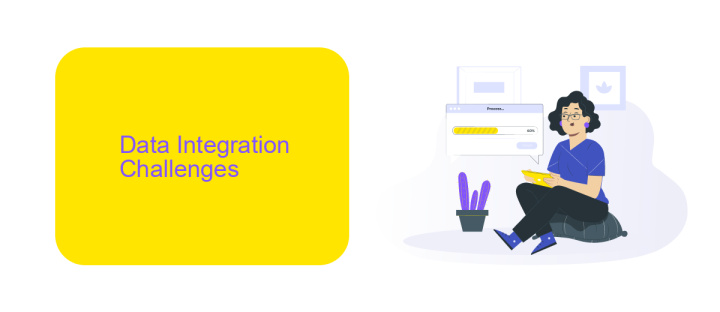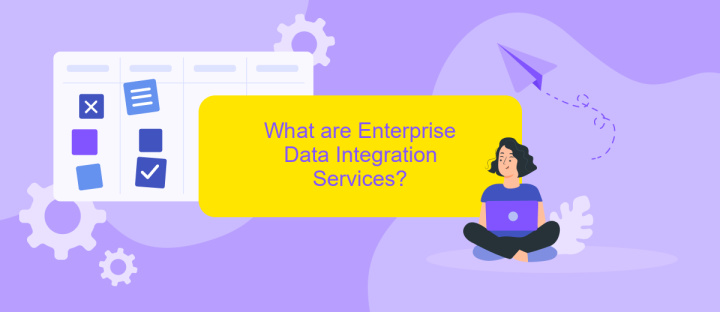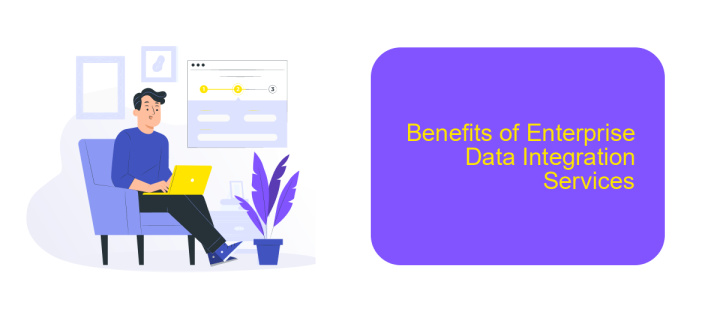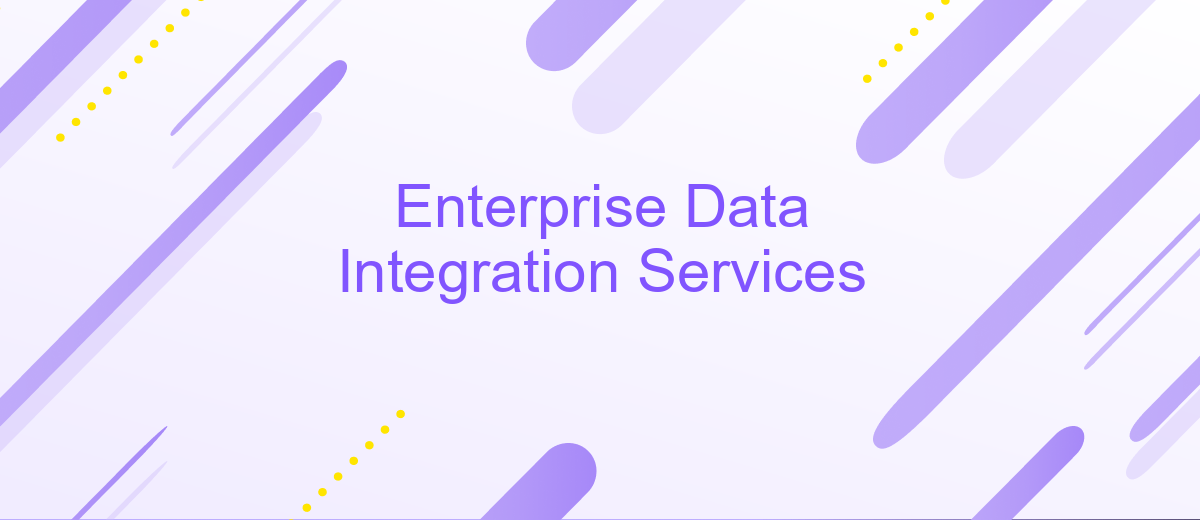Enterprise Data Integration Services
Enterprise Data Integration Services play a crucial role in today's data-driven business landscape. By seamlessly connecting disparate data sources, these services enable organizations to achieve a unified view of their information. This integration not only enhances decision-making capabilities but also drives operational efficiency and innovation. Discover how leveraging Enterprise Data Integration Services can transform your business into a more agile and informed entity.
Introduction
Enterprise Data Integration Services have become a cornerstone for modern businesses, enabling seamless data flow between disparate systems. These services are essential for organizations aiming to maintain data consistency, enhance operational efficiency, and make informed decisions based on real-time data analytics. By integrating various data sources, companies can achieve a unified view of their operations, leading to improved performance and competitive advantage.
- Streamlined data management
- Enhanced data accuracy and integrity
- Real-time data access and analytics
- Scalability and flexibility
- Cost efficiency and resource optimization
One such service that facilitates seamless data integration is ApiX-Drive. This platform offers a user-friendly interface for connecting various applications and automating workflows without the need for coding. By leveraging ApiX-Drive, businesses can effortlessly synchronize data between CRM systems, marketing platforms, and other enterprise applications, ensuring that information is always up-to-date and accessible. As a result, organizations can focus on strategic initiatives rather than getting bogged down by data silos and integration challenges.
Data Integration Challenges

Data integration in an enterprise environment presents numerous challenges. One of the primary issues is the complexity of integrating data from diverse sources, each with its own format, structure, and protocols. This heterogeneity often leads to data inconsistency and inaccuracies, making it difficult to maintain a single source of truth. Additionally, data security and compliance become significant concerns, as sensitive information must be protected across various systems while adhering to regulatory requirements.
Another challenge is the scalability and performance of the integration solutions. As the volume of data grows, traditional methods may struggle to keep up, resulting in slow processing times and potential bottlenecks. Tools like ApiX-Drive can alleviate some of these issues by offering automated data integration services that streamline the process and ensure real-time synchronization. However, even with such tools, enterprises must carefully plan and monitor their integration strategies to address potential technical debt and ensure long-term sustainability.
What are Enterprise Data Integration Services?

Enterprise Data Integration Services are essential for organizations looking to streamline their data management processes. These services enable the seamless integration of data from various sources, ensuring that information is consistent, accurate, and readily available for decision-making. By leveraging these services, businesses can achieve a unified view of their data, which is crucial for operational efficiency and strategic planning.
- Data Extraction: Collecting data from different sources such as databases, APIs, and cloud services.
- Data Transformation: Converting data into a consistent format suitable for analysis and reporting.
- Data Loading: Moving the transformed data into a centralized repository or data warehouse.
- Data Synchronization: Ensuring that data across various systems is kept up-to-date and synchronized.
- Data Monitoring: Continuously tracking data flows and ensuring data quality and integrity.
One example of a service that facilitates enterprise data integration is ApiX-Drive. This platform offers a user-friendly interface for setting up automated data workflows between various applications and systems. By using ApiX-Drive, organizations can reduce manual data handling, minimize errors, and enhance overall productivity. In summary, Enterprise Data Integration Services are pivotal for maintaining a cohesive and efficient data ecosystem within an organization.
Benefits of Enterprise Data Integration Services

Enterprise Data Integration Services offer numerous advantages that significantly enhance business operations. By seamlessly connecting disparate data sources, these services facilitate real-time data access, enabling more informed decision-making and improving overall efficiency. Companies can streamline their workflows, reduce manual data entry, and minimize errors.
One of the key benefits is the ability to consolidate data from multiple systems into a single, unified view. This holistic perspective allows businesses to gain deeper insights and drive strategic initiatives. Additionally, data integration services ensure data consistency and accuracy, which are critical for maintaining data integrity and compliance.
- Improved data accessibility and sharing
- Enhanced decision-making capabilities
- Reduced operational costs
- Increased data accuracy and consistency
- Streamlined business processes
Tools like ApiX-Drive further simplify the integration process by offering user-friendly interfaces and automated workflows. This allows businesses to quickly set up integrations without extensive technical expertise, saving time and resources. Ultimately, enterprise data integration services empower organizations to leverage their data more effectively, driving growth and innovation.
Choosing the Right Enterprise Data Integration Services Provider
Choosing the right enterprise data integration services provider is crucial for ensuring seamless and efficient data flow across your organization. Start by evaluating the provider's experience and expertise in handling large-scale data integration projects. Look for providers that offer robust and scalable solutions, such as ApiX-Drive, which can connect multiple applications and automate data transfer without requiring extensive coding knowledge. Additionally, consider the provider's ability to support various data formats and sources, as well as their commitment to data security and compliance with industry standards.
Another key factor is the level of customer support and training offered by the provider. Opt for a service that provides comprehensive onboarding, ongoing support, and readily available resources to help your team maximize the benefits of the integration solution. ApiX-Drive, for instance, offers a user-friendly interface and extensive documentation to facilitate easy setup and management of integrations. By carefully assessing these aspects, you can select a provider that not only meets your current needs but also scales with your business as it grows.
FAQ
What is Enterprise Data Integration?
Why is Enterprise Data Integration important?
What are the key challenges in Enterprise Data Integration?
How can automation help in Enterprise Data Integration?
What should I consider when choosing an Enterprise Data Integration solution?
Do you want to achieve your goals in business, career and life faster and better? Do it with ApiX-Drive – a tool that will remove a significant part of the routine from workflows and free up additional time to achieve your goals. Test the capabilities of Apix-Drive for free – see for yourself the effectiveness of the tool.

